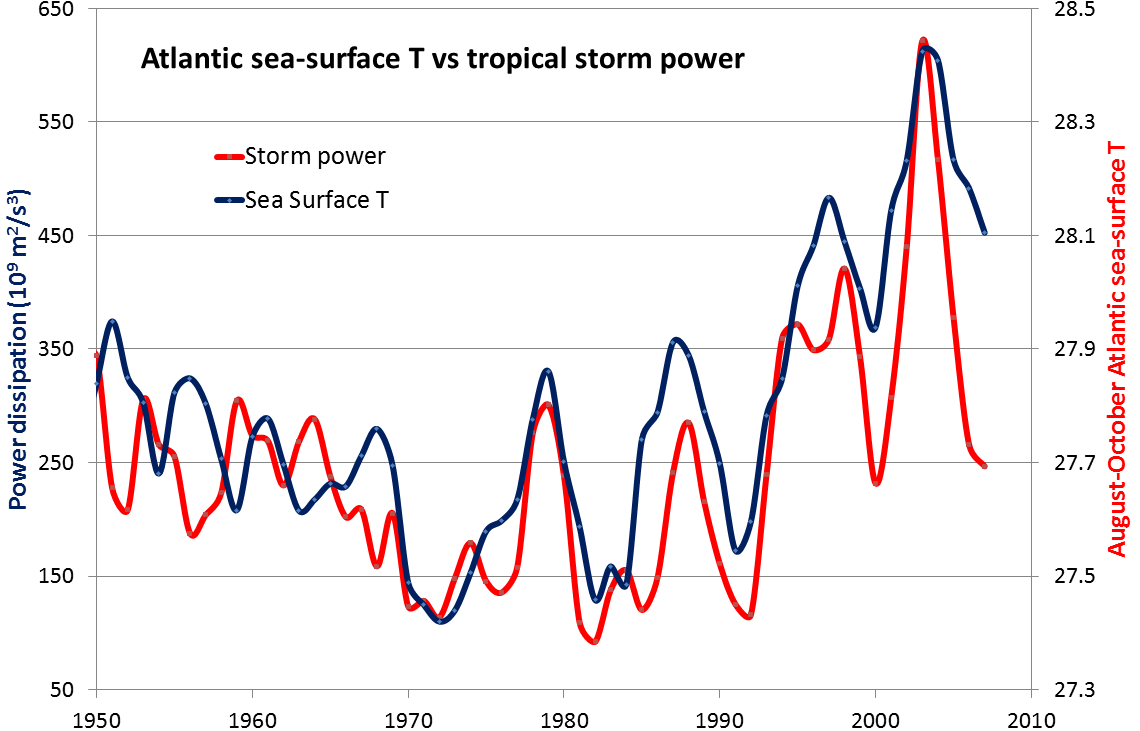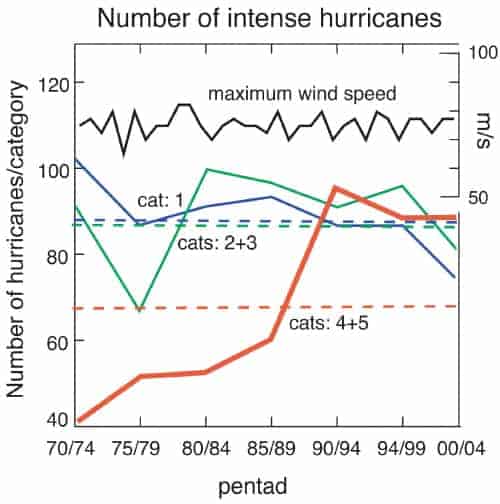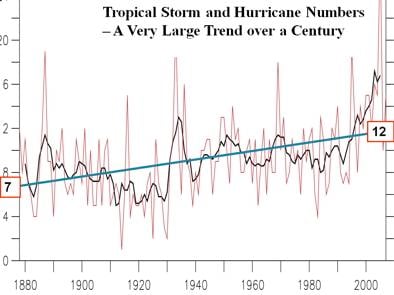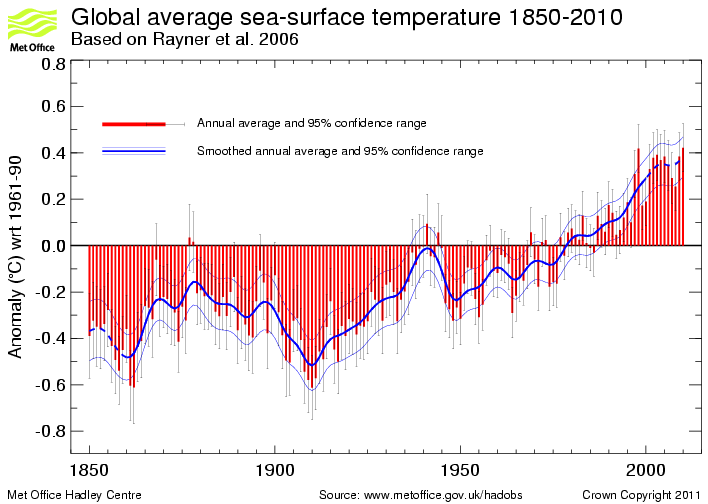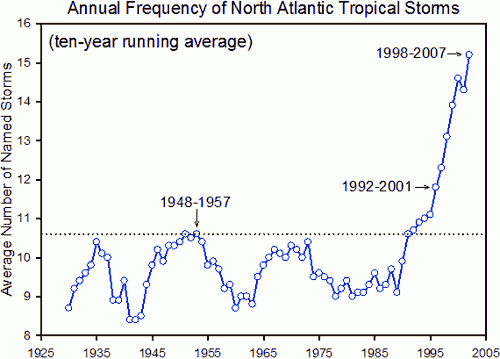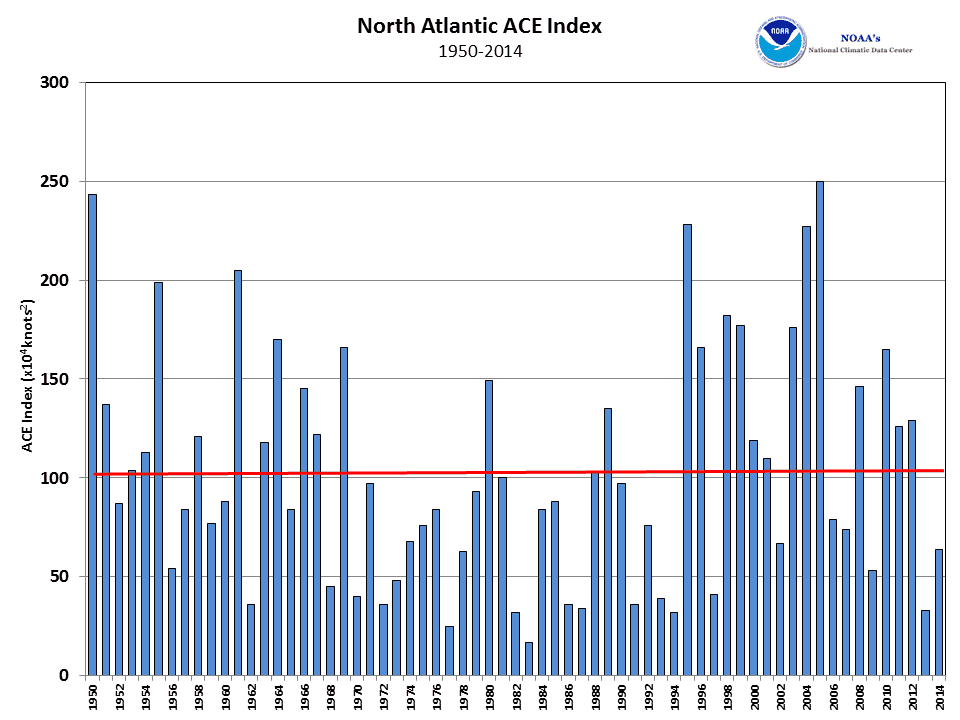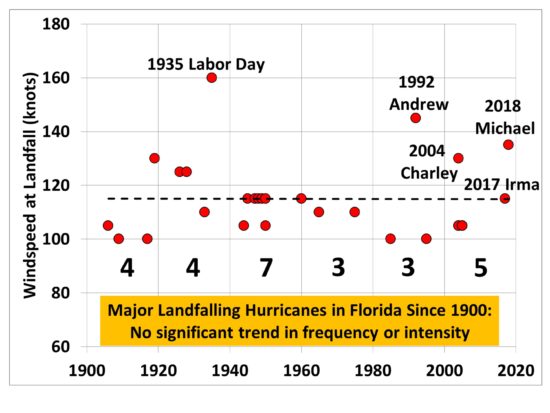Sunsettommy
Diamond Member
- Mar 19, 2018
- 15,178
- 12,747
- 2,400
The Labor Day Hurricane is still the most powerful hurricane to hit Florida, which is only 83 years ago.
Global Warming
October 11th, 2018 by Roy W. Spencer, Ph. D.
Florida Major Hurricane Strikes: Still No Trend
Excerpt:
I’ve updated a plot of Florida major hurricane strikes since 1900 with Hurricane Michael, and the result is that there is still no trend in either intensity or frequency of strikes over the last 118 years:
LINK
Global Warming
October 11th, 2018 by Roy W. Spencer, Ph. D.
Florida Major Hurricane Strikes: Still No Trend
Excerpt:
I’ve updated a plot of Florida major hurricane strikes since 1900 with Hurricane Michael, and the result is that there is still no trend in either intensity or frequency of strikes over the last 118 years:
LINK

